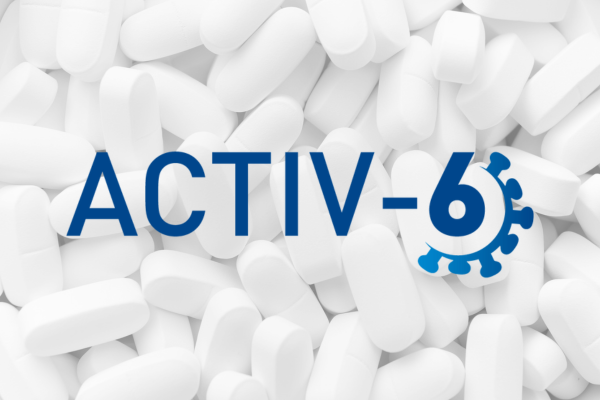
A study led by the Duke Clinical Research Institute (DCRI) in partnership with Vanderbilt University found no symptomatic or clinical benefit in taking metformin at a titrated dosage of 1,500 mg per day for 14 days for the treatment of mild-to-moderate COVID-19 symptoms.

"There was no evidence of improvement in the rate of sustained recovery in participants who took this dose of metformin versus those who took a placebo," said Adrian Hernandez, MD, MHS, the study's administrative principal investigator and executive director of the DCRI.
ACTIV-6—"The Randomized Trial to Evaluate Efficacy of Repurposed Medications"—is a nationwide, remote, double-blind study that enrolled nearly 11,000 participants from across the United States to evaluate the potential benefits of treating mild-to-moderate COVID-19 with repurposed medications. Repurposed medications are those already approved by the U.S. Food and Drug Administration (FDA) for other medical indications.
In ACTIV-6, researchers studied how medications impacted the rate of sustained recovery, defined as three days without COVID-19 symptoms.
Metformin is one of five FDA-approved repurposed medications tested in ACTIV-6. Metformin is an oral medication commonly used to treat diabetes. It is not approved by the FDA to treat COVID-19 and should only be taken as prescribed or as part of a clinical trial. Metformin was chosen for this study because previous evidence suggested that it may be able to reduce inflammation caused by the virus. This arm of the study was open from August 2023 to April 2024 and was made up of 3,000 participants.
Taking 1,500 mg of metformin did not shorten the time to sustained recovery. There was also no difference in hospitalizations or deaths between participants who took metformin versus those who took a placebo.
ACTIV-6 researchers also tested metformin's effect on COVID-19 symptoms at day 180 from symptom onset. Data from this part of the study are still being analyzed and will be shared as soon as possible.
In addition to Hernandez, contributing members of the ACTIV-6 Executive Committee include Susanna Naggie, Stacey Adam, David Boulware, Carolyn Bramante, Sean Collins, Sarah Dunsmore, G. Michael Felker, Chris Lindsell, Matthew McCarthy, Ahmad Mourad, Russell Rothman, Thomas Stewart, and Florence Thicklin.
ACTIV-6 (ClinicalTrials.gov identifier NCT04885530) received funding from the National Institutes of Health (3U24TR001608-06S1).
"Metformin was the last repurposed medicine that ACTIV-6 studied for at-home treatment of COVID-19 symptoms," said Susanna Naggie, MD, MHS, the DCRI principal investigator overseeing the study's clinical coordinating center. "Thank you to all participants and researchers who helped us learn about treating COVID throughout this study."
About ACTIV-6
ACTIV-6 is part of the National Institutes of Health-funded Accelerating COVID-19 Therapeutic Interventions and Vaccines (ACTIV) and is led by the National Center for Advancing Translational Sciences (NCATS). The DCRI serves as the study's clinical coordinating center, partnering with Vanderbilt University Medical Center as the study's data coordinating center. The study is leveraging the infrastructure of PCORnet®, the National Patient-Centered Clinical Research Network, supported by the Patient-Centered Outcomes Research Institute, and the Trial Innovation Network, a collaborative initiative within the NCATS Clinical and Translational Science Awards Program that helps address critical roadblocks in clinical trials and accelerate the translation of novel interventions into life-saving therapies.
About the Duke Clinical Research Institute
The DCRI, part of the Duke University School of Medicine, is the largest academic clinical research organization in the world. Their mission is to develop, share, and implement knowledge that improves global health through innovative clinical research. The institute conducts multinational clinical trials, manages major national patient registries, and performs landmark outcomes research. The DCRI is a pioneer in cardiovascular and pediatric clinical research and conducts groundbreaking clinical research across multiple other therapeutic areas, including infectious disease, neuroscience, respiratory medicine, and nephrology. The DCRI is also involved with other ACTIV studies, serving as the U.S. coordinating center for ACTIV-1, a COVID-19 master protocol study testing immune modulators, and participating in ACTIV-4, which is examining optimal use of oral anticoagulants to prevent COVID-19-associated blood clots.